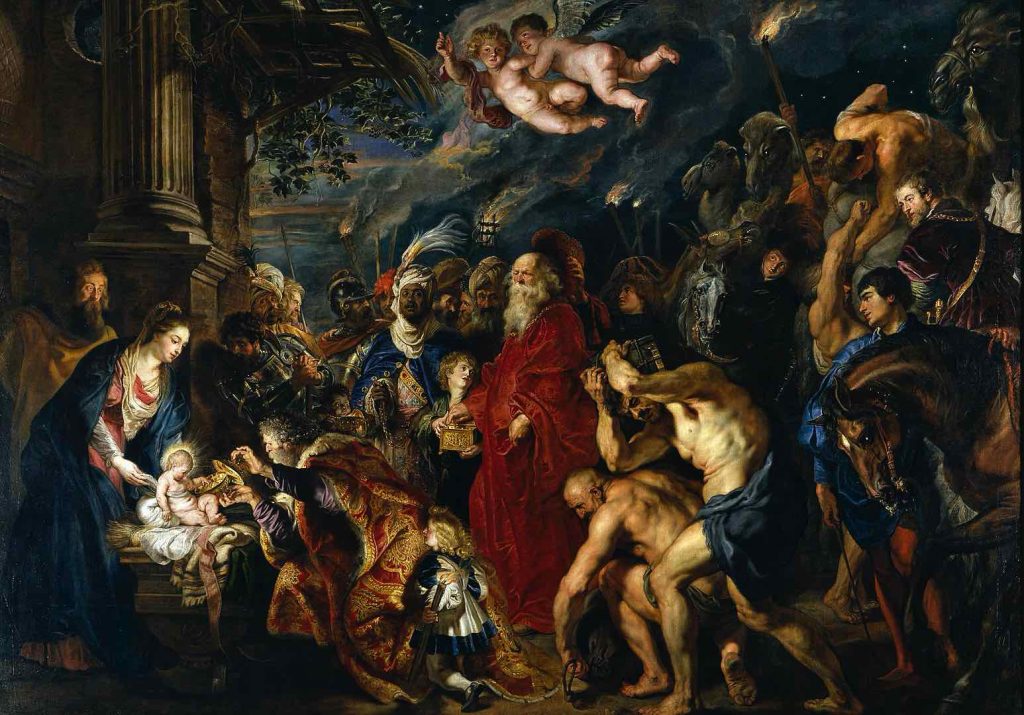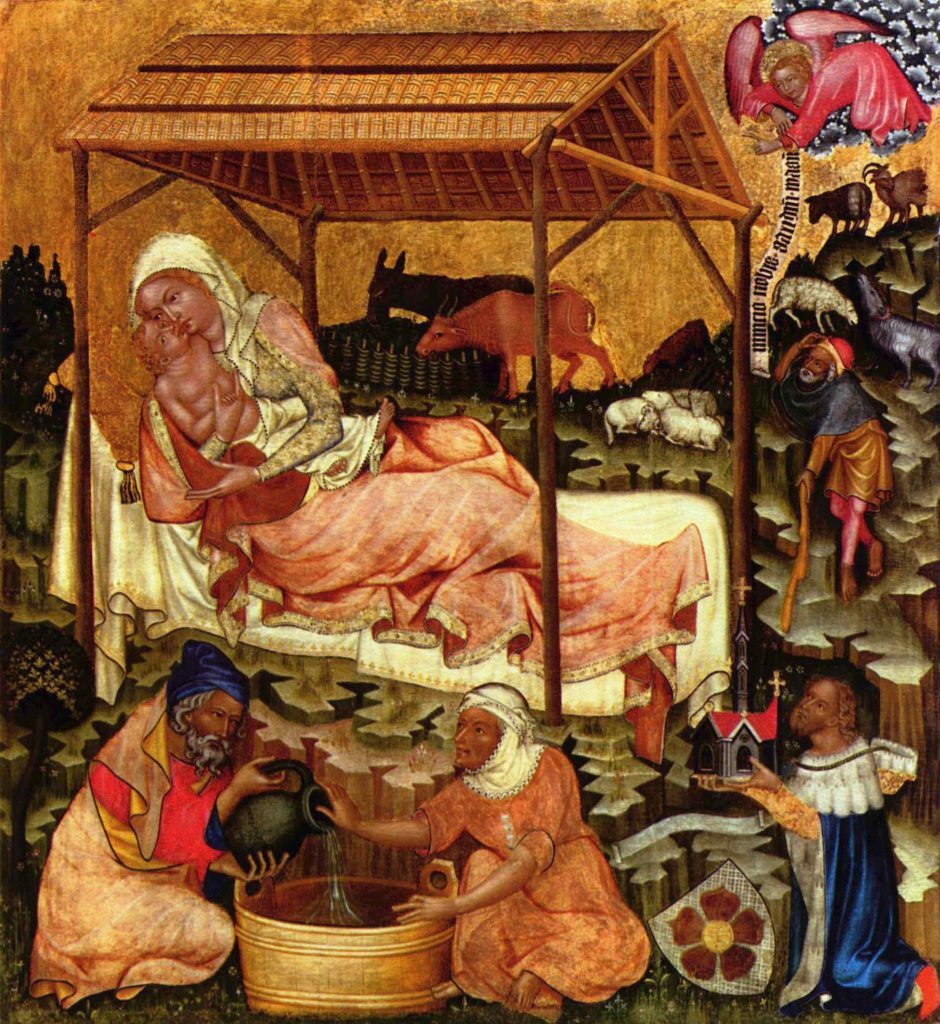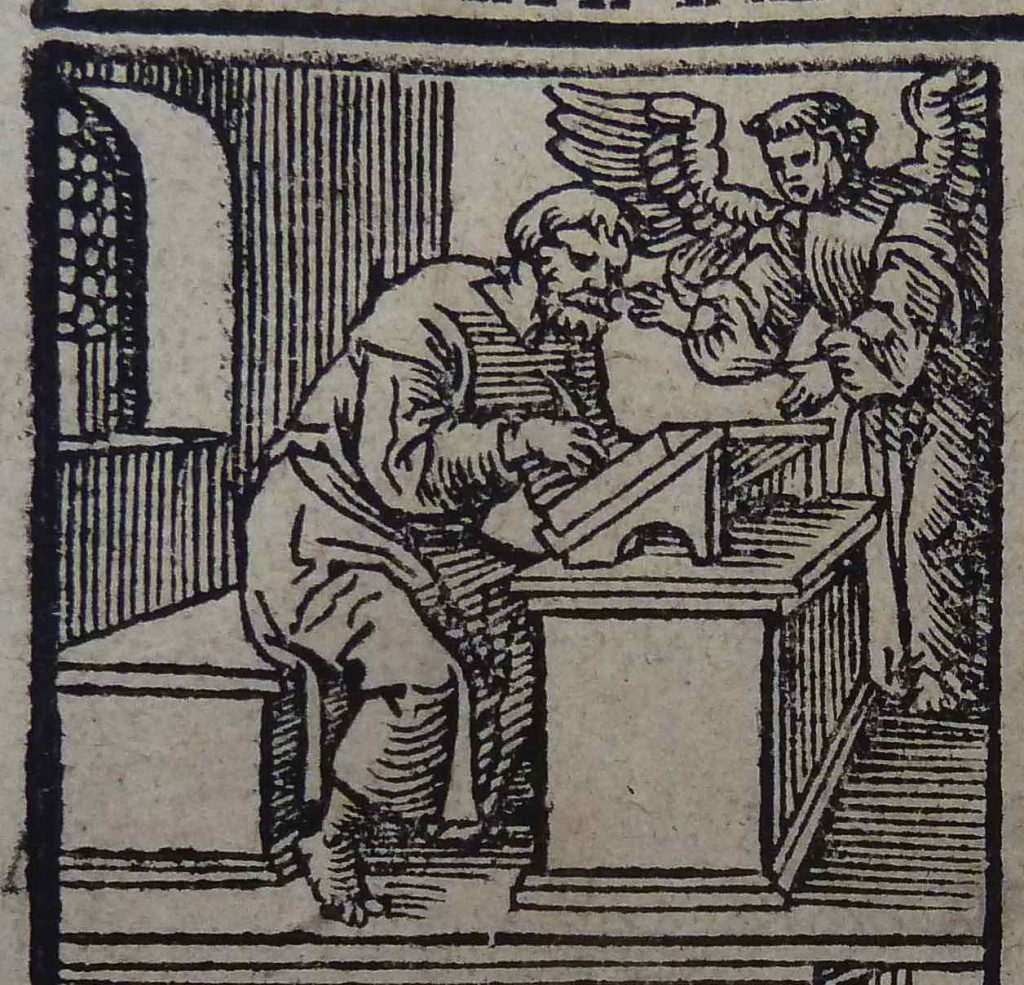
The blessing of reading and looking deeply at God’s Word is a blessing precisely because it allows us to draw close to God Himself, who is the source of all blessing. We should then understand that the blessing ought not to be our focus – it is the only the consequence of drawing close to God – the ‘collateral restoration’ of being near to Him.
Of course, there is nothing wrong with drawing near to Him because we recognize our need for a blessing – just that doing so is not the highest or best motive for seeking Him. That we operate largely out of wrong motives is an unfortunate reality for all of us – we are fallen people living in a fallen world. Fear not, God is gracious and well knows our frame! Yet there are some who would look at God’s Word not to gain a blessing from God, but to gain a selfish advantage over other people. Such people are not acting from mere foolishness, but from an intent that must be recognized as pure evil.
The Magi had come to king Herod, asking, “Where is the one who has been born king of the Jews?” But Herod was not happy when he found that a rival to his title (King of the Jews) had been born. “When King Herod heard this he was disturbed, and all Jerusalem with him. When he had called together all the people’s chief priests and teachers of the law, he asked them where the Christ was to be born.”
Certainly, one might first think that perhaps he wanted to know where Christ was born to answer the Magi’s question. But remember that Herod was anything but a fool. Moreover, Herod’s father was a Antipater II – an Edomite Semite – which meant that Herod was raised as a Jew. Though he is disturbed by what he’s heard so far, his mental state is not such that he is unable to think or remember how he was raised with respect for the Scripture. Herod well knows that the answer to the question must be within God’s Word. Yet he deliberately chooses not look at Scripture himself. Instead, he calls those he knows do have a knowledge of it – the Jewish chief priests and the teachers of Jewish law – and tasks them with finding out the answer.
Obviously there was no email, television or clear method of mass communication, but we can know that this not a matter of expediency all the same. For the text says, “When he had called together all the people’s chief priests and teachers of the law.” It would’ve taken some time to pull everyone together – to call the scribes, dictate the place and time of the meeting, send out messengers to all and then wait for them to respond. All of that taking time that could have been instead used to study God’s Word himself. Or at least with those already in the palace. But such an effort would only gain him the knowledge of where Christ was to be born in to answer the Magi’s question, and in reality that’s not the answer Herod actually sought. He thought it better to focus on how the evil intent of his heart might be satiated.
The attitude with which we approach God’s Holy Word is the lens through which we will read it. So when we turn to the Scripture, we ought to first search out our intentions. Why we are doing that? Ideally, it is because our heart is looking for Him. Less ideally, it is in search of His blessing. But to be avoided at all costs is prideful intention.
God’s Word is a mirror. A plain reading by the thoughtful disciple reflects matters of the soul that we might repent. To see God through it, we first have to finish repenting. Only then we can look for Him with any serious expectation of catching something of His holiness and glory.
Marcus Verbrugge
APPLICATION: Intentionality
How do you ready your heart to come to God’s Word?
“Do not merely listen to the word, and so deceive yourselves. Do what it says. Anyone who listens to the word but does not do what it says is like a man who looks at his face in a mirror and, after looking at himself, goes away and immediately forgets what he looks like. But the man who looks intently into the perfect law that gives freedom, and continues to do this, not forgetting what he has heard, but doing it—he will be blessed in what he does.”- James 1:22-25










